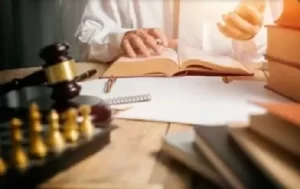The patent law domain features compulsory licenses at their core to bridge invention promotion with…
Compulsory Licensing in South Africa
South Africa welcomes the opportunity to make submissions on the topic of exceptions and limitations. South Africa recognizes the role that Intellectual Property (IP) and Intellectual Property Rights (IPRs) play in the global context of advancing innovation, the dissemination of knowledge, the creation of thriving industries and its contribution to the global economy. It is also noted with concern the detrimental effect that the creation of monopolies can have on public health and advancing inequalities between developed and developing economies. It highlights, therefore, the importance of striking a balance between preserving the rights of creators of IP on the one hand, by providing incentives for their creativity and ingenuity, but equally important, providing access to knowledge, technology transfer and safe affordable medicines for the benefit of all.

South Africa has consulted extensively with a number of intergovernmental organizations, government departments and organs of state, Non-Government Organizations (NGOs), activist groups and industry bodies and all relevant stakeholder in formulating a national IP policy that is cognizant of the rights of IP creators and simultaneously, is sensible to the needs of the public, in particular from a public health perspective.
The efforts of the government and interested stakeholders led to a consolidated publication named “Draft National Policy on Intellectual Property (DNPIP)” in 2013. It was simply a directive to address the fragmented issues in the IP laws and framework and to provide an unambiguous policy on administration of related laws in the country.
The policy was followed by and replaced by the Intellectual Property Consultative Framework (IPCF) which was published in July 2016. The IPCF sets out a phased approach to formulating a national IP Policy for South Africa and established an Inter-Ministerial Committee on Intellectual Property (IMCIP), which comprises Ministers from various government departments that administer IP laws in South Africa, for inter-governmental co-ordination of the policy formulation processes and implementation. The IPCF sets out a two phased approach to formulating a national IP Policy. Phase 1 will deal with two aspects, namely Patents and Public Health and International IP Cooperations. Phase 2 will deal with developmental goals and needs of South Africa which are medium term goals. On 7 August 2017, the South African Government, through the Department of Trade and Industry (DTI), published the Draft IP Policy of South Africa (Phase 1) (DIPP) which was open earlier for public consultation for a period of sixty days.
Legal Framework related to Licenses
South Africa has made provision for compulsory licenses under Section 55 and 56 of the Patents Act, Act no. 57 of 1978 (‘Patents Act’). Compulsory licensing, although new to South Africa in 1997, is not foreign to the developed world, almost all of the members of the EU provide for compulsory licensing in their legislation.
Governments can use compulsory licenses in public health to address amongst others high prices of medicines; anti-competitive practices by pharmaceutical companies; failure by pharmaceutical patent holders to sufficiently supply the market with needed medicines; and in emergency public health situations. In practical terms compulsory licensing can be used to bring down the prices of medicines and to ensure a sufficient supply of medicines in the market in cases where the patent holder cannot, or will not, provide sufficient supplies at the right price. It is also a critical tool in emergency situations where the patent holder cannot respond to an urgent situation.
The Patents Act provides for a judicial process for the determination and issue of compulsory licenses i.e., applications for compulsory licenses are determined by the Commissioner of Patents. In practice, the Commissioner of Patents is a judge of the High Court, appointed by the Judge President of the relevant Regional Court to preside over matters pertaining to IP Often, a number of judges are appointed for this purpose and typically with no or little experience in dealing with IP matters. An applicant/patentee who wishes to obtain a compulsory license can approach the court for an order to grant a compulsory license, in the case of a dependent patent (Section 55), or in the case of an abuse of the patent rights by a patentee. The Commissioner of Patents will hear evidence in support and against the grant of the compulsory licenses and make such order as appropriate.
Issues in the Process
In many instances, the high cost of litigation and the timeframes to reach finality on matters relating to compulsory licenses remains a deterrent to making use of this flexibility afforded in the TRIPS agreement and the DOHA Declaration. It is therefore an ineffective means of addressing the key challenge of providing access to safe affordable medicines in the case of abuse of patent rights. Many South Africans who require access to medicines subject to patent rights are unable to afford these medicines let alone approach a court to grant an order for a compulsory license. As a result, millions of people are currently denied lifesaving health services or are plunged into poverty because they are forced to pay unfordable fees for their care. Typically, cases for compulsory licenses are settled out of court due to pressure from activist groups or government interventions. South Africa has a proud history of robustly engaging with issues that concern intersection between Intellectual Property (IP) rights and public health.
Conclusion
The South African IP landscape is characterised by a number of IP legislations under the administration of various government departments and organs of state. Each department and/or organs of state administers its own piece of legislation with limited engagement with other government departments. This resulted in policy incoherence and the ineffective administration of IP laws in South Africa. To address this issue, the South African government, through the Department of Trade and Industry (DTI) published the DNPIP in 2013. South Africa is embarking on a consultative and inclusive process to address issues of IP rights and access to essential medicines.
Author: Tanya Saraswat- a student of Narsee Monjee Institute of Management Studies (NMIMS), in case of any queries please contact/write back to us via email to chhavi@khuranaandkhurana.com or at IIPRD.



